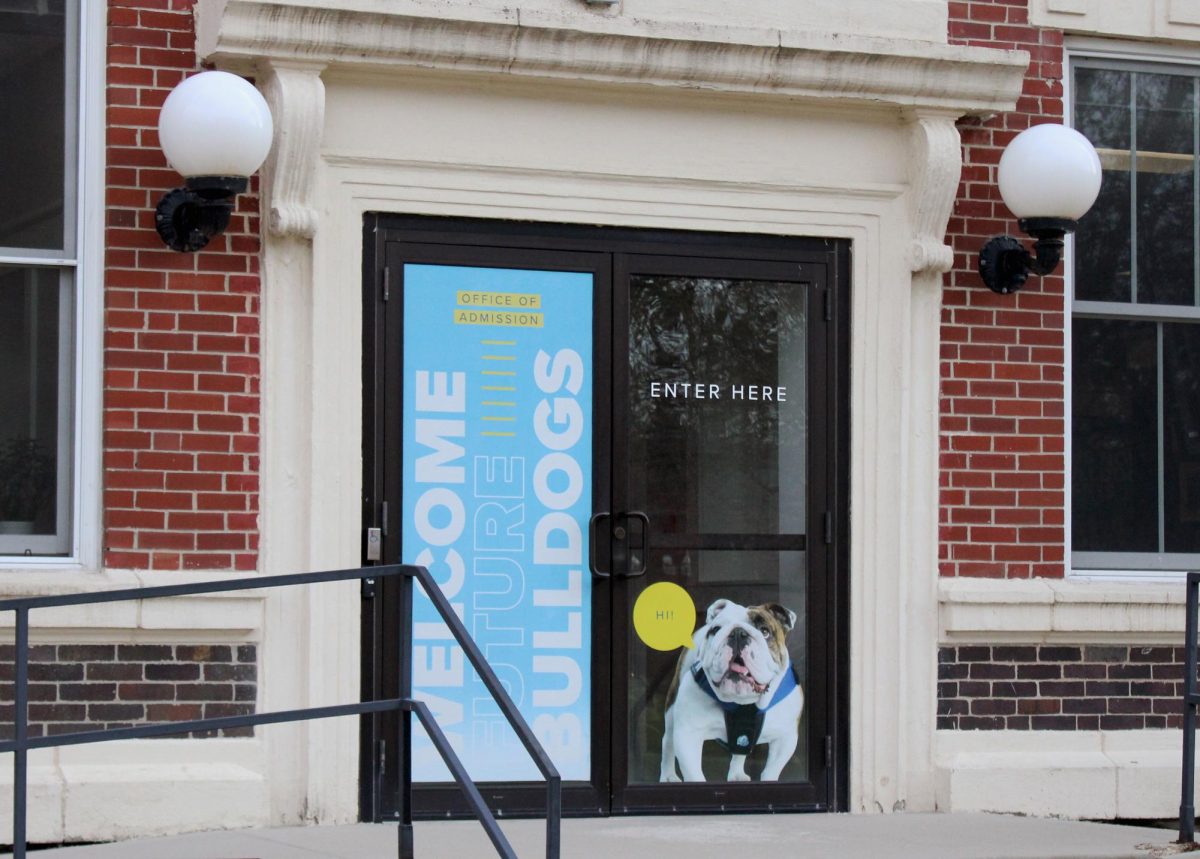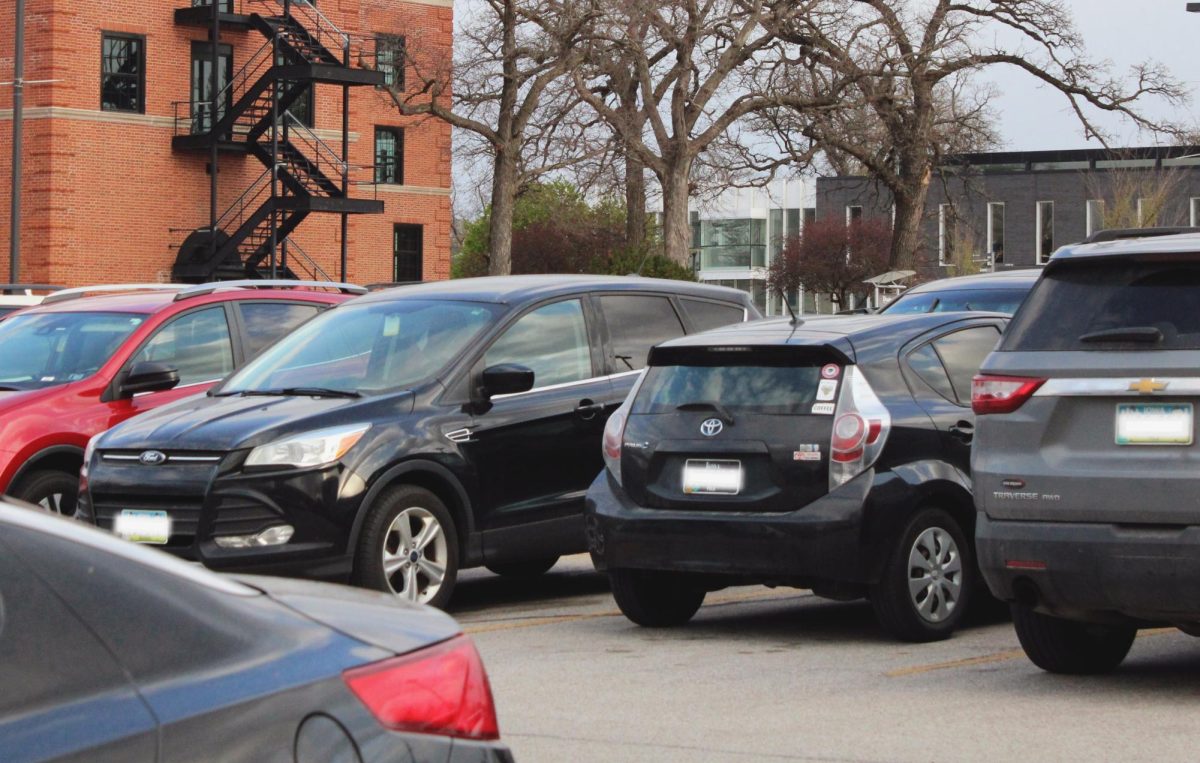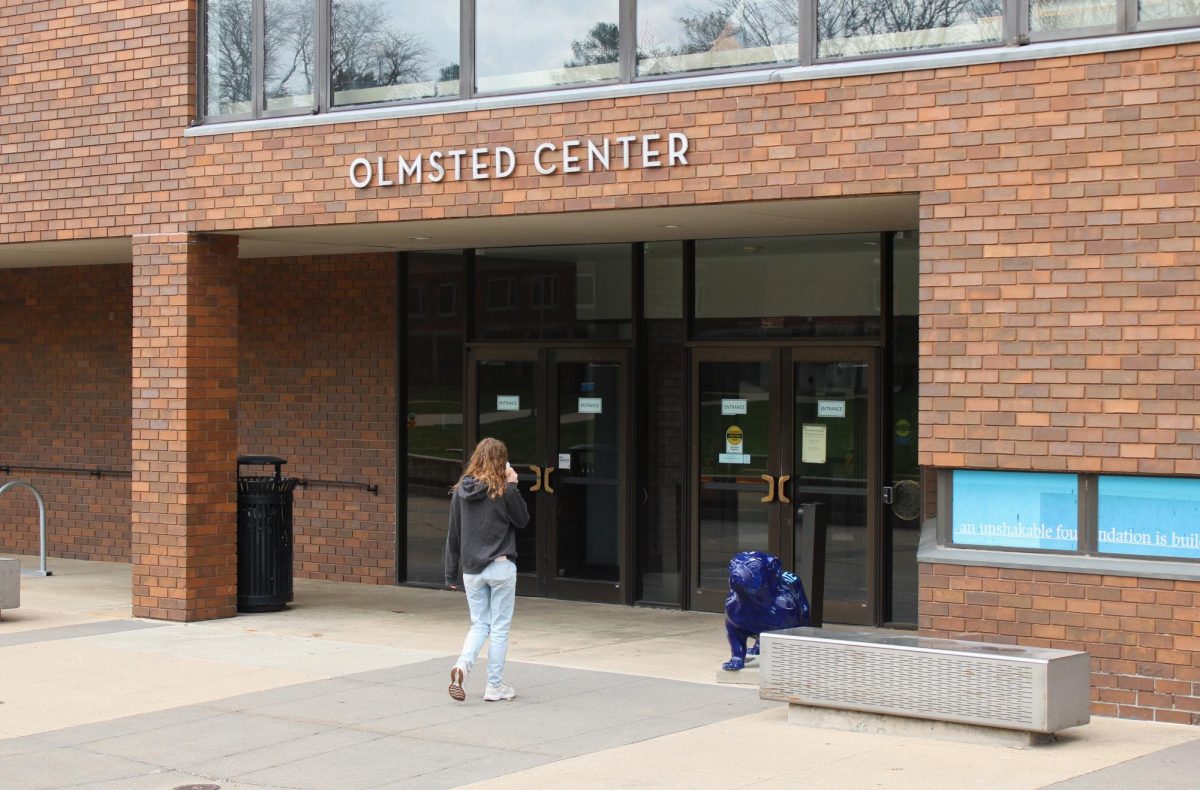April and May are the busiest times of year for the Drake University admissions team. As decision day approaches and final applications roll in, the number of committed students has grown compared to last year, the first increase since the COVID-19 pandemic.
Since the pandemic, a major trend in college admission nationwide is that more students want to attend college closer to home, whether living on-campus or commuting. In response to students looking for schools closer to home, the Drake admissions team shifted their focus to serve the Des Moines community further.
Grace Wenzel and Grace Robinson are the admissions counselors who serve the Des Moines area. Grace Robinson serves central Iowa and the outer Des Moines suburbs, while Wenzel works specifically with Des Moines schools.
According to Wenzel, one misconception of Drake within the local community is that Drake is only for the “elite.” Therefore, Wenzel said, applicants don’t think they are “good enough,” which is a crucial hurdle to recruiting more students. Another large misconception counselors explain to their students is the total admissions cost. Students may not know about presidential scholarships or the Bulldog Promise, which cuts down the total tuition price potential students would initially see. Counselors also review what a student’s education journey at Drake would look like to solidify their opinion.
“Students don’t know that Drake can be as accessible as it is,” Wenzel said.
Some local students commute because of the money they would save on housing, according to Wenzel. If these students were presented with a similar offer from a school across the state or country, they would have to pay the extra housing fee. For these students, it would make sense to stay closer to home and cut down costs.
“For some students, commuting is a way to offset those costs by not living on campus,” Wenzel said. “… I don’t think living on campus is the be-all, end-all to a satisfying college experience.”
A 2023 study by Brian Communications showed that parents would also like their students to attend college closer to home. Around 50 percent of parents who participated in the study said they would rather have their students attend a local school, mainly because of cost.
“When most people look at pricing, they’re like, ‘Oh, $50,000, why would I go to there when I could go to DMACC,’” first-year student Jaxon Aijiri said.
In general, college admissions peaked around the start of the 2008 recession. Throughout the 2010s, admissions continuously decreased at a steady rate. At the start of the pandemic, however, admission rates nationwide dipped further and continued to decrease until the 2024 school year.
Starting with the 2025-2026 school year, however, admissions rates have risen for the first time since 2010. Wenzel attributed the change to the FAFSA program running smoothly again after delays in 2022 and 2023, along with the increase in Drake’s program options, such as the John Dee Bright College.
As admissions rates have fluctuated, the Office of Residence Life has closed or repurposed residence halls that it believed would be redundant based on the student population. With the closing of Morehouse, Jewett and Ross as residence halls, the number of open halls for on-campus living decreased from eight to five. Even though Drake anticipates the number of local students to increase, it should not cause any residence hall changes or closures, Assistant Dean of Students and Director of Residence Life Lorissa Sowden said in a September interview.
Johansen Student Center, previously Morehouse Residence Hall, opened at the start of the semester. Wenzel said Admissions plans to promote the center to local prospective students as a place to lounge or access kitchen equipment, as local commuters can’t simply walk back to a dorm or apartment.
While admissions numbers are not final, around 100 more students have committed to Drake compared to this time last year. Wenzel does not know if this is a direct result of the localized admissions effort; however, within the next few years, the admissions team will continue to strengthen its presence in the Des Moines area as a viable option for all students.
“Nearly all of our metrics, including applications, admitted students and tuition deposits, are outpacing the last several years at this moment in time,” Strategic Communications Director John Krantz said.
Morgen Neuhauser and Mack Swenson contributed to reporting.













